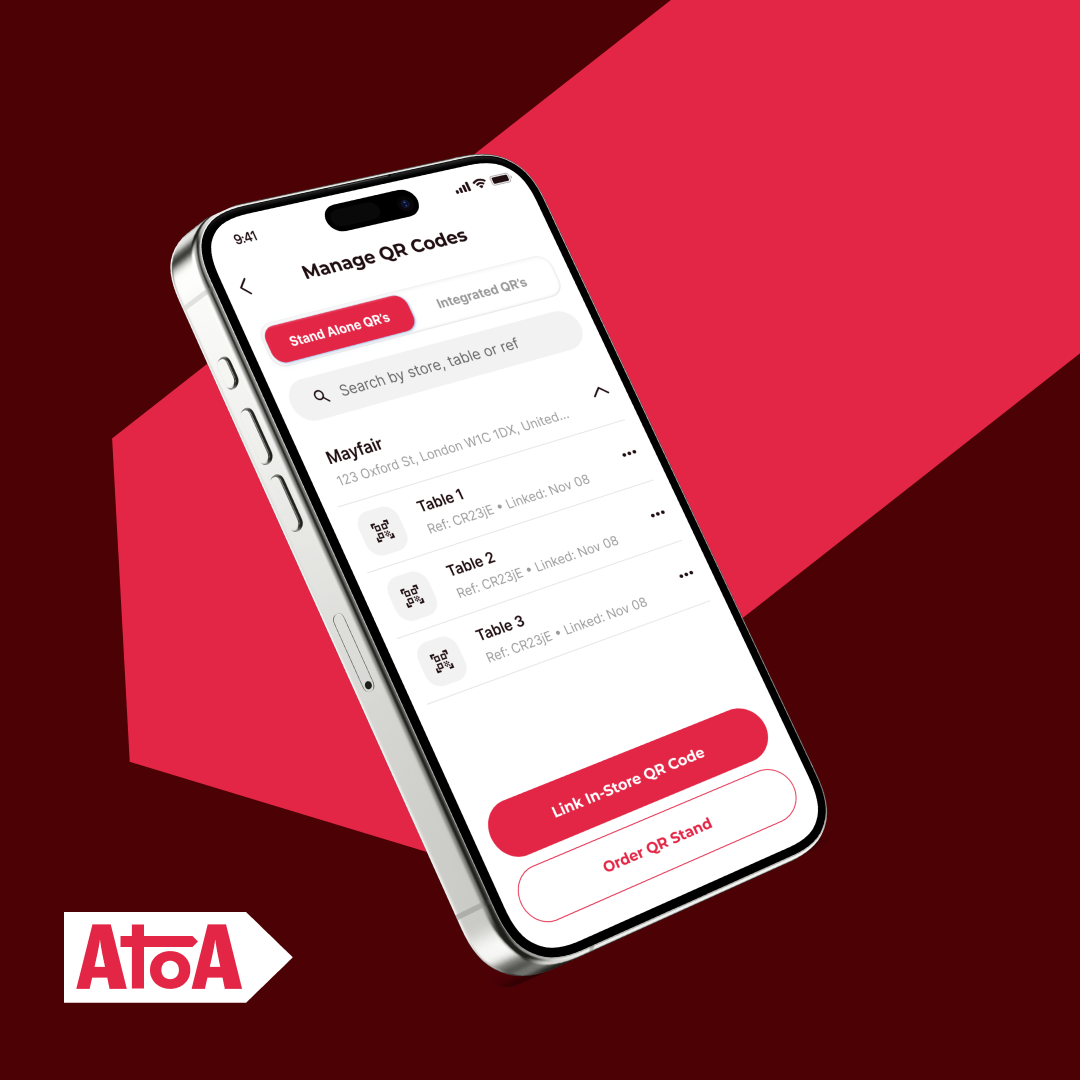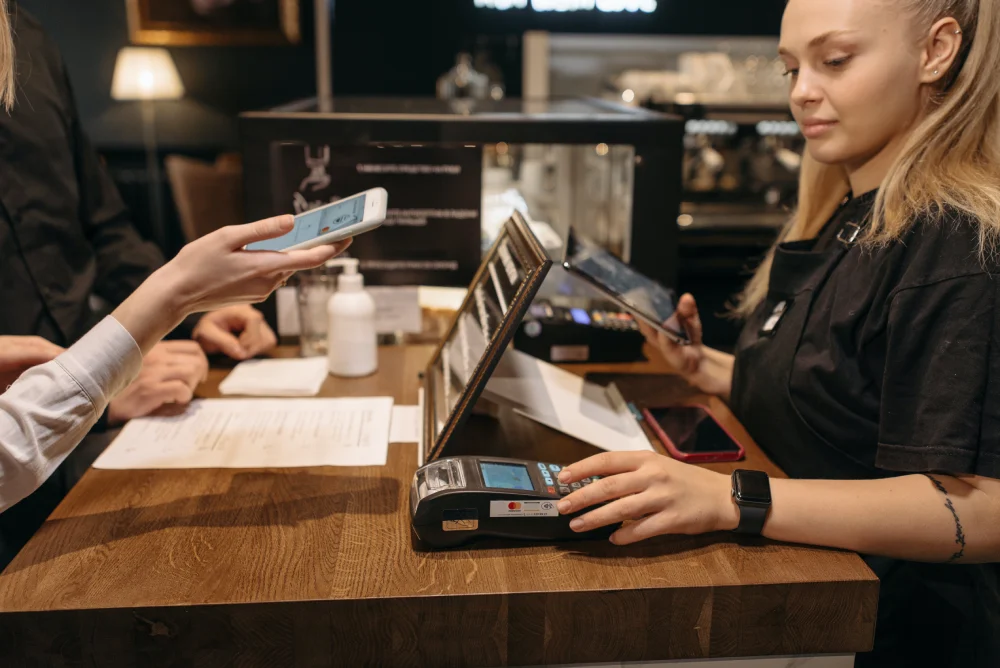Ready to get started?
Easily integrate next-generation payments and financial data into any app. Build powerful products your customers love.
Open banking APIs? We’re here to break them down. But don’t worry, abbreviations and jargon give us the heebie jeebies, too. To start exploring the art of open banking APIs, you should know what open banking is first. Our linked blog post runs through the essentials, but here’s a brief overview to get you started. And we promise to keep it simple!
Open Banking entered the UK market in 2018 thanks to the Payment Services Directive 2 (PSD2). Open banking is a system that lets banks and financial companies share customer data with other providers through open Application Programming Interfaces, or APIs.
With a customer’s permission, third-party providers can analyse transactions to offer new services, like budgeting tools and new payment methods. This makes finance more transparent and competitive by allowing fresh companies, like fintechs, to join the market and give customers more control over their money.
Open banking is in a growth spurt, with more fintechs and startups using open APIs to develop digital banking interfaces and payment solutions. Open banking has reshaped how people manage their money and use financial services in just a short time. So, who knows what’s next?
Keep reading this article to uncover:
- What open banking APIs are
- The role APIs play in fintech
- Their benefits for businesses and consumers
- The future holds for open banking APIs
Why open banking APIs matter in fintech
APIs, or Application Programming Interfaces, are the language apps use to communicate. They help UK fintech startups develop new products and services, from handy budgeting tools to payment apps. But why bother?
APIs can make payments faster, boost security, and save businesses money on steep processing fees. The UK isn’t short of open banking API providers, but Atoa is a big fan of Yapily, whose secure API lets businesses access real-time financial information and automate or initiate payments.
Open banking helps consumers
Do you want to tap into better money management? Open banking APIs allow consumers to connect their financial accounts from multiple banks to view them in one place for a solid overview of their finances. This opens the doors to better budgeting with tracked spending. For better or worse, it’ll let you know how much money you’re spending a week on pizza!
Moving money? Open banking APIs make instant payments between different banks effortless.
My favourite real-life example of this is paying taxes to HMRC (sigh). Revenue and Customs offer an open banking payment to settle tax bills, which opens a payment request in your chosen bank app.
Open banking data can improve credit scoring models for lending and credit management, making that lifelong dream of scoring a sweet mortgage a reality. But how does this tech help business owners win?
Ways businesses benefit from open banking APIs
Just like that hassle-free HMRC example, merchants can also use instant payments. Whether it’s hospitality or hair and beauty on the agenda, open banking APIs let businesses tap into instant funds for a cashflow boost. Processing fees are dramatically lower, letting business owners channel more money into investments or better stock and wages.
Let’s not forget that easier payments help your customers have a better experience, too. Here’s a relatable example of open banking payment apps like Atoa as their best.
How open banking payments work
- You’ve just eaten a tasty bowl of ramen at your favourite Japanese joint.
- The bill is here, and you’re ready to pay, but there isn’t a staff member in sight.
- You look down and see a QR code printed on the receipt.
- You scan it, and it triggers an instant payment in your bank app.
- Payment is confirmed with biometric security, and you’re ready to leave.
- A quick check in your bank app shows that the payment has been taken.
- You walk out of the restaurant happy and come back for lunch again next week.
- A winning result for the customer, staff and business owner!
We put this in a handy video for you, too…
Open banking can offer deeper insights into business performance and even automate tasks as they go. Accountancy software like Xero and QuickBooks allow businesses to track their cash flow, spending and financial performance fraud using APIs. They make tax returns much easier, too!
While we’re here, find out how Atoa’s API works with accountancy software for easier reporting.
Innovative business payment solutions (like ours) should also provide you with other bonuses, like adding employees, taking tips, and managing multiple businesses or locations from one place.
But, if you’re confused by this, then the best takeaway is that open banking APIs exist to make your business operations easier.
How to choose an API for your business
Fintech startups and UK merchants considering open banking APIs should keep the following tips in mind. This roadmap rolls out some of the key considerations and steps you should take.
Step 1: Think about your business needs
What do you hope to achieve with open banking?
What specific features and capabilities do you need?
For example, if you run an e-commerce store, look for APIs that can be added to websites and offer instant refunds. Hospitality operator? Then you need in-store payments and easy B2B services. Once you clearly understand your requirements, you can narrow down your options.
Step 2: Research and compare APIs that work for you
Once you have a general idea of what you’re looking for, start researching and comparing different open banking APIs. Choose an API that gets the job done and is easy for your team to use. Consider working with a third-party provider, such as Atoa, who can provide open banking services for you. Compare pricing, check for gotcha contracts and make sure they have good customer reviews. Take your time!
Step 3: Try demos and free trials
Once you’ve fine-tuned your search, request demos and trials from the shortlisted API providers. This lets you see the APIs in action and get a feel for how they might work for you. Pay attention to how easy they are to use, the features available and the overall experience.

Step 4: Check the price is right
Pricing and support are important. Make sure it fits your budget and research usage fees, contracts and transaction charges. Also, does the provider have online “how to” documentation, like videos or a Knowledge Hub?
Step 5: Add the API to your flow
Once you’ve decided which API to use, connect it to your system. To avoid any teething issues, test in a sandbox environment to see how it works with your current kit.
Step 6: Monitor and adapt the API as your business grows
Once you’ve added the API, keep checking in with staff and customers for feedback. If you encounter any issues, contact the API provider for support.
Adding open banking APIs to a UK small business can seem daunting, but the right choice can make it easier to manage cash flow, payments, accountancy and more.
How open banking APIs are regulated
Open banking APIs are very safe. They use the same encryption and security measures as online banking. Open banking is also regulated by the UK government, which means third parties must protect customer data. These regulations require banks and third parties to follow tight security standards, including two-factor authentication, encryption, and continuous monitoring of systems and data.
The takeaway
Open banking puts customers in control of their data. Customers can choose which data they want to share with third parties and can remove access at any time. So, if you are concerned about the safety of open banking, don’t be. It’s a safe, secure and reliable way to manage personal and business finances.
Adding open banking APIs to your UK business can help you save time, reduce costs, and improve efficiency. With the correct API and approach, you can use this powerful tool to grow and scale your business.
The future of open banking API is likely to involve even more data sharing and integration with other financial technologies, leading to greater innovation and convenience for consumers. There’s no better time than the present!
Further reading and FAQs
What is an open banking API?
APIs, or Application Programming Interfaces, are the language apps use to communicate. They help UK fintech start-ups develop new products and services and can also make payments faster and cheaper for merchants.
Are open banking APIs secure?
Yes, open banking APIs are safe and are built with bank-level security measures. Open banking is also regulated by the UK government, which means third parties must protect customer data with two-factor authentication, encryption, and close monitoring of their systems.
How do these APIs work?
With your consent, they allow third-party providers to access your banking information, making it easier for you to manage your money across multiple accounts and services.
What data can an open banking API access?
Predominantly, it is account information, transaction history, and payment initiation.
Does open banking protect my data?
Your personal information is protected while using open banking API through data encryption and strong user authentication.



